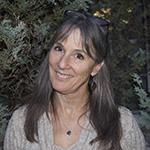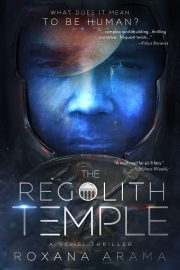The Pleasures of Anthology Editing
by Susan Forest
 For the past six years, in addition to my writing, I have been editing novels, both for a Canadian small press and freelance, and have found unique rewards and challenges in this work. A year and a half ago, however, a nascent small publisher paying professional rates hired me to edit an invitation-only speculative fiction anthology. Of course, getting paid is a big incentive, but I had a lot of questions about whether I wanted to commit to a project of this size with a publisher with an unproven record. I did commit, and the process has been a learning curve—in a very positive sense of the phrase.
For the past six years, in addition to my writing, I have been editing novels, both for a Canadian small press and freelance, and have found unique rewards and challenges in this work. A year and a half ago, however, a nascent small publisher paying professional rates hired me to edit an invitation-only speculative fiction anthology. Of course, getting paid is a big incentive, but I had a lot of questions about whether I wanted to commit to a project of this size with a publisher with an unproven record. I did commit, and the process has been a learning curve—in a very positive sense of the phrase.
To begin with, Laksa Media Groups has a clear vision as a publishing company; their tag line is “read for a cause, write for a cause, help a cause,” and a portion of each sale is donated to a charitable organization. In the case of “Strangers Among Us,” an anthology celebrating the strengths of, and challenges faced by, those struggling with issues of mental health and illness, donations go to the Canadian Mental Health Association. So, from the beginning, I was impressed by this start-up’s understanding of its own niche.
Second, the anthology was invitation-only, and the publisher was not afraid to approach big names in the field. As this was my first anthology, it was a little nerve-wracking to be providing editorial suggestion to well-known Canadian writers such as Kelley Armstrong, A.M. Delmonica, Gemma Files and Edward Willett. At World Fantasy in 2014, I had an opportunity to go for dinner with a group of editors from various backgrounds who assured me that the bigger the name, the more professional the response, and I was relieved to discover this advice to be more than true. Sure, some stories arrived that barely needed a comma changed. Some needed a few changes, and others more, but I found, almost without exception, the authors were willing to work toward the end goal of a great book. One author with an impressive following submitted his story late due to competing deadline pressures, and when the story was submitted, it had some gaps in consistency. The story had a wonderful kernel and a unique take on the theme that rounded out the depth of the anthology, but I was wondering how the author would take the suggestion of significant edits. I was amazed. Within a surprisingly short turn-around, he submitted a revision that fully understood my concerns, addressed and superseded them—and his email reply thanked me for my insights. It still makes me blink.
Third, I enjoy the editing process. I like seeing a passage, whether my own or someone else’s, improve with a changed word choice, a question answered, or an idea clarified or extended. To create an entirety—a book—from the discrete stories that make it up, by juxtaposing ideas, styles and emotional content, was a satisfying and creative process that was new to me.
Fourth, it was simply a joy to see how nineteen authors interpreted the theme of “Tales of the Underdogs and Outcasts” in so many different ways. One expects the topics of schizophrenia, paranoia, and addictions to surface in an anthology on mental illness, but I also saw stories about brain implants, political brainwashing, a frighteningly close-to-home example of societal madness, and a touching fantasy about simple cognitive limitations.
Finally, the publisher drew me in to the process of publishing more deeply than I’d been involved in my previous editing experiences. The complexities, particularly of the promotional process such as timelines for major reviewers, cover design, and various forms of back cover and copy, gave me substantially new insights. Again, perhaps because I was fortunate to work with a publisher who had done his homework and had the passion and organizational chops to keep the project moving forward professionally, I learned a lot about how books are put together, and all the plates that need to be kept spinning in order to make the book a success. Now, with the final published version in my hand, the satisfaction and pride I feel is immensely fulfilling. The book, itself, is stunning, and I get my name on the cover, along with a string of A-listers! Four- and five-star reviews are coming in with glowing comments, and the multi-city launches are on the horizon. But the best part is contributing to the treasure of immersive and moving stories between the covers and the opportunity to promote mental health awareness.Is there a downside to editing an anthology? Of course. Like all editing gigs, a writer must ask him or herself, do I want to edit, or do I want to write? Unlike some day jobs, for example, editing is an artistic process, and it can satisfy the creative itch, leaving less drive for one’s own fiction. Still…
Would I edit such an anthology again?
Absolutely.
In fact, my next project has already begun. And I’m all smiles.
•••
Three-time Prix Aurora Award finalist, Susan Forest is a writer of science fiction, fantasy and horror, and a freelance fiction editor. Her stories have appeared in Asimov’s Science Fiction, Analog Science Fiction and Fact, Beneath Ceaseless Skies, Tesseracts, AE Science Fiction Review, OnSPEC Magazine, and The Urban Green Man, among others. Her collection of short fiction, Immunity to Strange Tales, was published by Five Rivers Press. Susan acted as judge for the Endeavour Award, and the Robin Herrington Memorial Short Story Contest, and she contributes to Calgary’s annual literary festival, When Words Collide. Susan is also Secretary for the Science Fiction and Fantasy Writers of America (SFWA). She teaches creative writing at the Alexandra Centre, and has appeared at numerous local and international writing conventions.


